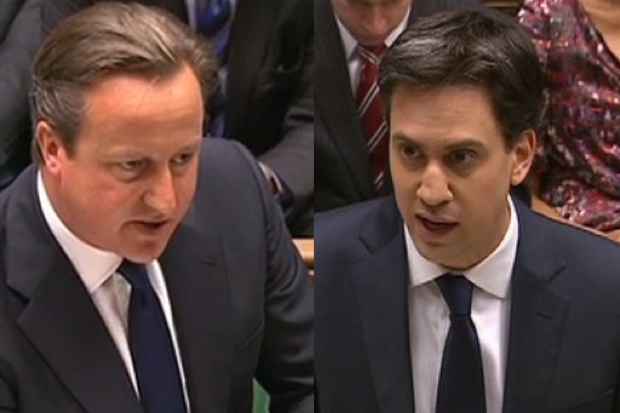A rite of passage for any Opposition leader these days is to promise to make politics more decent and connected to people’s lives. One recent Opposition leader said this, for example:
‘And we need to change, and we will change, the way we behave. I’m fed up with the Punch and Judy politics of Westminster, the name calling, backbiting, point scoring, finger pointing.’
David Cameron, who said this in his leadership acceptance speech in 2005, now has a team of MPs who help heckle Labour in the Commons during Prime Minister’s Questions. This was mainly in response to Labour being much better at heckling, with Ed Balls gesticulating and sledging away on the front bench, and Michael Dugher and Sadiq Khan doing similar dirty work on the steps on the Labour side of the house. But Ed Miliband has now reached the stage in his leadership of the Labour party where he wants to do away with Punch and Judy politics, too. He told the World this Weekend that he agreed with Speaker Bercow’s assessment of the session:
‘I’m with him on Prime Minister’s Questions, I don’t think it adds to the reputation of politics, I think it subtracts from the reputation of politics, I think lots of previous leaders, not just of the Labour party, but of the Conservative party would say that too. It’s easy to say it’s a problem, it’s harder to change it, but I’m totally up for finding ways to change it. I try and ask questions that I think the country wants asked because I think I’ve got a unique ability to do that by being able to asked David Cameron six questions each Wednesday. But, look, I know that people are put off by PMQs and the way it works and I would be part of any endeavour to try and improve it.
‘I think it was President Obama who said you can disagree without being disagreeable and in a way maybe that’s a sort of lesson for Prime Minister’s Questions but it’s easier to state and harder to execute. The cauldron of the House of Commons is not conducive to the kind of atmosphere that that invites, but we should always endeavour to do it and we should endeavour to be proud of the show we put on for the country, not giving people a sense that, you know, their kids behave better than we do.’
Miliband is always keen to cast himself as the decent man of politics – and feels that this is one of his great weapons in a presidential-style run-off between him and David Cameron in 2015. But his own attempts to calm the atmosphere at PMQs have so far failed – the Tories stayed noisy and tribal and so Labour just looked a bit sombre or bored.
I worked on a film for Newsnight this week in which I argued that the tribal, passionate atmosphere of PMQs was a sign of a healthy democracy – but there are some easy things both sides could do that would make the session much, much better. They don’t need to stop cheering and acting as though they’re at a football match: deferential politics is not a good thing. But backbenchers could, as a group, decide that they’re not going to take those ghastly questions from the whips that involve them asking a poorly-worded variation of ‘does my right honourable friend agree with me that he’s doing a fantastic job?’. Some MPs have, to their credit, tried to jazz them up: Alun Cairns has rewritten loyal questions to include references to curry and added his own jokes. But if MPs want more voters to think that parliamentarians spend this weekly session debating the issues that affect real people’s lives, they could at least use their one opportunity to quiz the Prime Minister as an opportunity to really quiz him, rather than just suck up to him.
There’s also no need for MPs to jeer one another when they stumble over questions (although quite often an MP who stumbles is doing so because they are reading a pre-written missive from the whips, rather than asking about something that affects their constituency, for instance).
These are just small changes, and some will argue that the whole nature of the session should change. Miliband was certainly hinting that he thought the structure of the Commons Chamber didn’t help matters in his Radio 4 interview. But the sort of consensual approach encouraged by circular chambers and group systems dilutes the ability of an opposition in checking the power of a governing party and holding it to account over hopeless reforms.
Or else, Miliband is just going through a ‘new politics’ phase like most modern political leaders before him – and nothing will change at all.







Comments